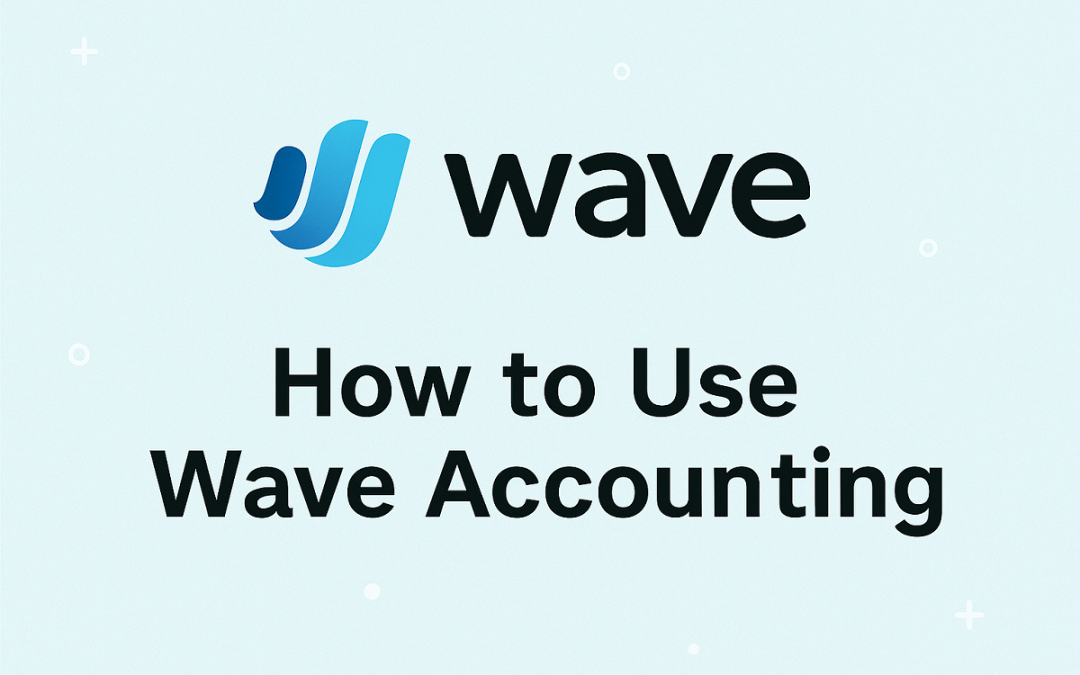When launching a startup, entrepreneurs are often so consumed with product development, marketing strategies, and building a customer base that financial management becomes an afterthought.
Yet, without a solid accounting system in place, even the most innovative startups can quickly find themselves in financial disarray. For founders working on a tight budget, Wave Accounting stands out as one of the most powerful and accessible free accounting solutions available today. Designed with small business owners and startups in mind, Wave offers a robust suite of financial management tools, including invoicing, income and expense tracking, receipt scanning, and financial reporting, all in a user-friendly, cloud-based platform.
Unlike many other accounting solutions that lock essential features behind paywalls or require steep monthly subscriptions, Wave’s core accounting features are completely free, making it an ideal starting point for startups that need to keep overhead costs low. Whether you’re bootstrapping your first SaaS product, launching a freelance consultancy, or running an e-commerce store, Wave can help you maintain clear financial oversight, streamline your bookkeeping processes, and prepare your startup for sustainable growth.
Setting Up Your Startup’s Financial Infrastructure in Wave
The first step in using Wave for your startup is creating an account and setting up your business profile. Wave’s onboarding process is straightforward. Simply provide your business name, industry, and contact details to get started. Once inside the dashboard, you’ll be prompted to configure your chart of accounts, which categorizes your financial transactions.
Wave offers industry-specific default categories, but you can customize these to reflect your startup’s unique revenue streams and expense types. For example, a SaaS startup might create income categories for subscription revenue, implementation fees, and support services, while categorizing expenses under software development, hosting fees, and marketing campaigns. Setting up your chart of accounts properly from the outset ensures your financial reports will accurately reflect your business activities.
Wave also allows you to link your business bank account and credit cards, enabling automatic transaction imports that save time and reduce the risk of manual entry errors. This bank feed integration is essential for startups, where cash flow can fluctuate unpredictably and real-time financial visibility is critical for survival.
Streamlining Invoicing and Payment Collection
Cash flow is the lifeblood of any startup, and Wave makes it easy to create professional, branded invoices that get you paid faster. From the dashboard, you can customize your invoices with your startup’s logo, color scheme, and payment terms, presenting a polished and trustworthy image to your clients. Wave supports both one-time and recurring invoices, making it ideal for startups offering subscription-based services or retainer agreements.
Payment processing is seamlessly integrated clients can pay invoices via credit card or ACH bank transfer directly from the invoice link. While Wave charges a modest fee for payment processing (similar to competitors like Stripe and PayPal), there are no fees for invoicing itself. The platform also supports automatic payment reminders, helping reduce late payments without awkward follow-up emails from your team.
For startups that rely on project-based billing, Wave includes time-tracking and project expense-tracking features, allowing you to create invoices based on billable hours and reimbursable expenses. By consolidating invoicing and payment collection into a single platform, Wave helps startups reduce administrative overhead and accelerate cash flow—a critical advantage in the early stages of business growth.
Tracking Expenses and Managing Receipts
Proper expense tracking is essential for understanding your startup’s burn rate, managing your runway, and preparing for tax season. Wave simplifies this process by allowing you to categorize expenses as they are imported from your linked bank accounts and credit cards.
Entrepreneurs can create rules that automatically categorize recurring expenses, such as software subscriptions or office rent, saving time on data entry. Wave’s mobile app enhances this functionality by allowing you to scan receipts on the go, automatically linking them to the correct expense transactions.
This is particularly useful for startups that incur travel, meal, or office supply expenses that might otherwise be lost in a sea of paper receipts. By maintaining accurate and categorized expense records throughout the year, startups can maximize their deductible business expenses and avoid the end-of-year scramble to organize their finances. Wave’s streamlined expense tracking ensures you have a clear picture of where your startup’s money is going, helping you make smarter budgeting and spending decisions.
Generating Financial Reports to Guide Startup Decisions
Wave Accounting offers a suite of essential financial reports that provide actionable insights into your startup’s financial health. These reports include the profit and loss statement (P&L), balance sheet, cash flow statement, and tax summary reports—each vital for monitoring financial performance and making informed strategic decisions. For example, a startup founder can use the P&L statement to track revenue growth, identify rising expense categories, and assess overall profitability.
The cash flow report highlights how much cash is coming in and going out, allowing entrepreneurs to anticipate shortfalls and plan accordingly. Wave’s tax summary reports break down income and expenses by tax category, simplifying tax preparation and ensuring compliance with tax authorities. While Wave’s reporting capabilities may not match the advanced analytics of enterprise-level accounting software, they are more than sufficient for startups focused on maintaining financial clarity and making data-driven decisions in their formative years.
Simplifying Payroll When You’re Ready to Grow
Many startups begin with solo founders or a small team of contractors, but as your business scales, you’ll likely need to hire employees. Wave offers optional payroll services (for a fee) that integrate seamlessly with its accounting platform. This allows startups to manage payroll taxes, direct deposits, and employee benefits without having to juggle separate software. Wave’s payroll feature automatically syncs with your general ledger, ensuring payroll expenses are accurately reflected in your financial reports.
For startups that aren’t ready for paid payroll services, Wave still allows you to manually track contractor payments and wages, giving you full visibility into your labor costs. By keeping your payroll and accounting systems in sync, Wave reduces the complexity of managing a growing team and ensures your financial records remain accurate as your startup expands.
Managing Multiple Businesses and Income Streams
For serial entrepreneurs or startups with multiple revenue streams, Wave allows you to create and manage multiple businesses under a single account. Each business gets its own financial records, invoices, and reports, allowing you to track performance separately. This is particularly helpful for founders running several side hustles or testing multiple product lines under different brand names.
Wave’s ability to compartmentalize finances eliminates confusion and ensures that financial data for each venture is accurately tracked and reported. Whether you’re managing a consulting business alongside a product startup or running multiple e-commerce stores, Wave helps you stay organized without paying for separate accounting software subscriptions for each entity.
Preparing for Tax Season Without the Headaches
Tax season can be stressful for startup founders who haven’t maintained organized financial records throughout the year. Wave’s categorization tools, tax summary reports, and receipt management features streamline tax preparation significantly. You can generate a year-end tax summary that breaks down your income and deductible expenses, making it easy to prepare your tax return or share the information with your accountant.
Wave also supports tracking sales tax for businesses operating in multiple jurisdictions, helping you remain compliant with local and state sales tax regulations. By staying on top of your income and expenses with Wave throughout the year, your startup can avoid the year-end scramble to assemble financial records, reduce the risk of errors, and potentially lower your taxable income by properly documenting deductions.
Collaboration and Accountant Access
Startups that work with outside accountants or financial advisors will appreciate Wave’s collaboration features. You can grant accountant-level access to your financial data, allowing your bookkeeper or CPA to review transactions, generate reports, and make adjustments without needing to send spreadsheets back and forth. This real-time collaboration streamlines your financial management process and ensures your books are accurate and up to date. As your startup grows and your financial needs become more complex, having a financial professional who can work directly within your accounting software will save time and reduce miscommunication.
The Limitations of Wave and When to Upgrade
While Wave is a powerful free tool, it does have limitations that startups should be aware of. Wave does not support inventory management, project-based accounting, or advanced financial forecasting, which may be essential for startups in industries like manufacturing or construction. Additionally, while Wave’s reporting capabilities cover the basics, startups seeking detailed financial analytics or investor reporting may find the platform too limited as they scale.
In such cases, entrepreneurs may eventually need to upgrade to more robust platforms like QuickBooks Online, Xero, or Zoho Books. However, for most early-stage startups focused on service-based businesses, SaaS, e-commerce, or freelancing, Wave’s features are more than adequate for managing finances efficiently during the initial growth phase.
Wave as a Startup Accounting Powerhouse
Wave Accounting provides startups with a rare combination of robust financial management features and zero upfront costs, making it one of the most attractive accounting solutions for new businesses on a budget. Its intuitive interface, comprehensive invoicing and expense tracking, and essential financial reporting give entrepreneurs the tools they need to maintain financial clarity and build a solid foundation for growth.
By leveraging Wave’s free tools, startups can avoid the costly mistakes that come from disorganized finances and instead focus their energy on scaling their business and serving their customers. While some startups may eventually outgrow Wave’s capabilities, it remains a reliable, user-friendly, and cost-effective solution for managing your startup’s finances from day one.
In the world of entrepreneurship, where every dollar counts, Wave empowers founders to take control of their financial destiny without adding to their overhead, a true win for scrappy startups determined to succeed.

